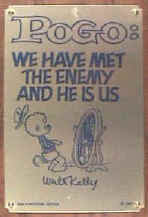Summer Tanach Studies
Monday, August 2, 2010, 7:00 pm – 8:30 pm
Eitz Chayim Community Room
Topic “The Cushite Woman”
Zipporah, the Cushite Woman, Miriam and Moses
Review Zipporah (previous blog)
Num 11:35-12:9 and Related Texts
Bring wine and food as desired.
Bring your own Tanach if possible
Category Archives: We have met the enemy…
Notes from Zipporah and Bridegroom of Blood
It may be useful to look over the notes prior to the class on Cushite woman. In the discussion, some suggested that since God had decreed circumcision with Abraham, Moses was not in compliance and therefore Zipporah needed to circumcise Moses. In this view, it was not Gershom who was circumcised. My notes contain an alternate view.
Summer Tanach Studies July 19
|
The formation of the Israelites
To those who were in the Canaanite class, thanks for sending me back to check on my comments about the Iron Age being responsible for cisterns and creating terraces.
Texts for Canaanites – from Curse to Conquest
Summer Tanach Series “We Have Met the Enemy and S/he is Us”
MONDAY, June 21 – Canaanites – from Curse to Conquest
MONDAY, June 21 – Canaanites – from Curse to Conquest
TUESDAY, July 6 – topic tbd
MONDAY, July 19 – topic tbd
MONDAY, August 2 – topic tbd
7:00 pm to 8:30 pm in the Eitz Chayim Community Room
136 Magazine Street, Cambridge
Feel free to bring brown bag dinner and/or wine
Through a close and intertextual reading of selected Biblical texts, we will explore the intersection of gender and politics in the ancient Israelite love/hate relationship with the outsider/other.
Each session will be completely stand-alone. Come to any or all.
Neither prior text study nor knowledge of Hebrew is required. Penina will supply the text choices. Bringing your own tanach (Bible) will be very helpful.
Topics may include
• Moabite women (and Ruth and David) – the permeable boundary between insider and outsider
• The Cushite woman (and Miriam and Moses)
• The Adam and Eve – is Creation in the image of God androgynous? Is YHVH gendered?

